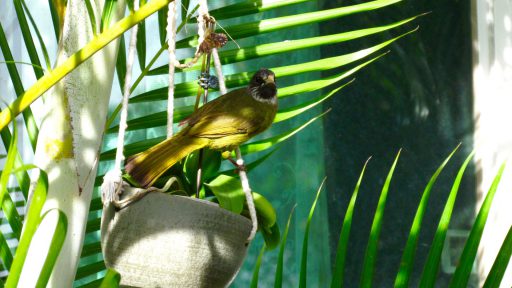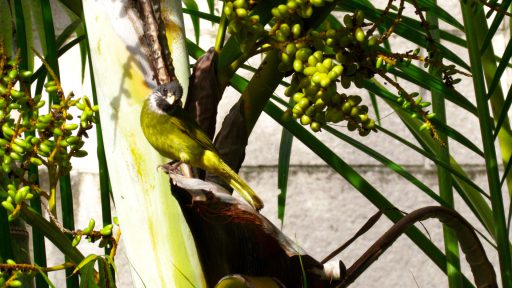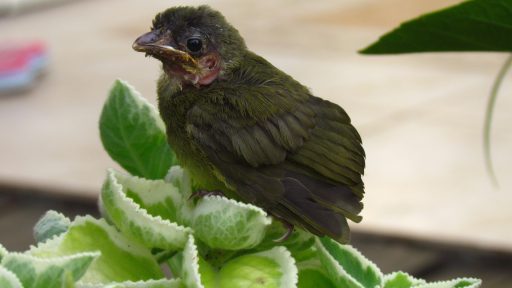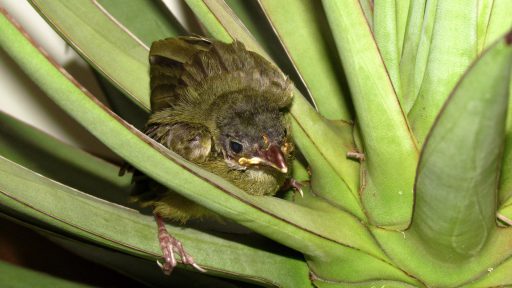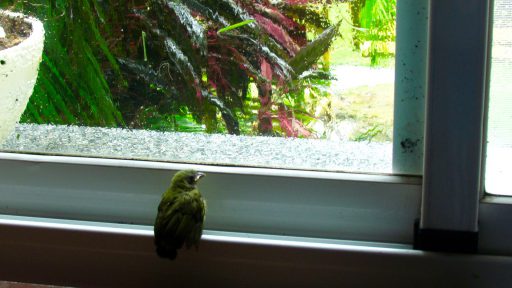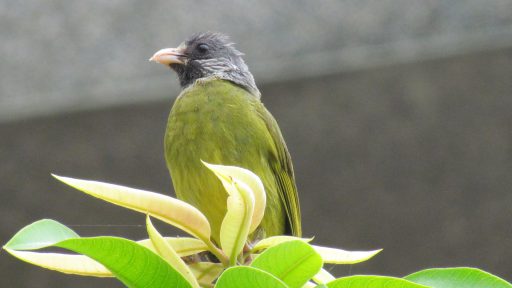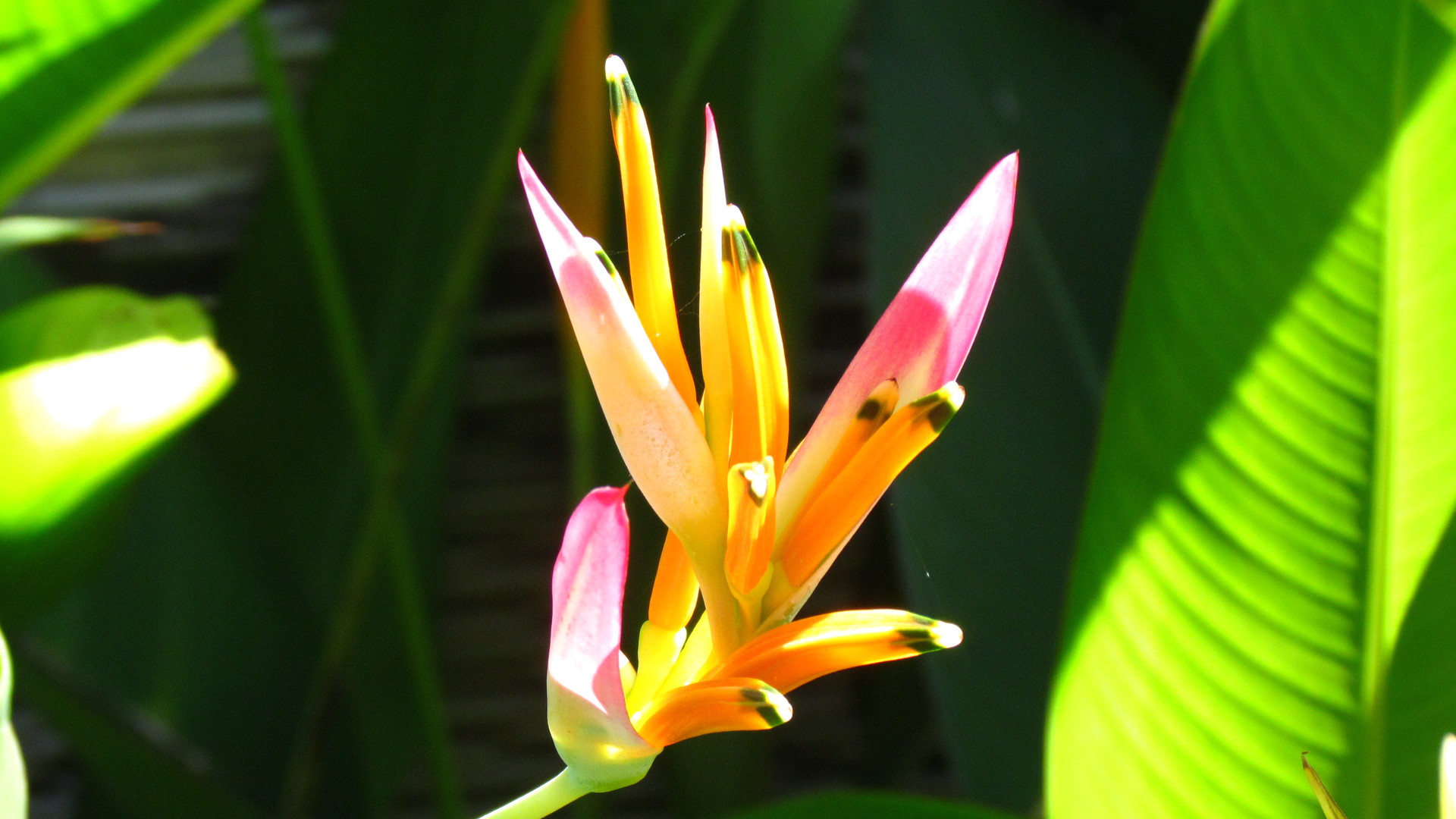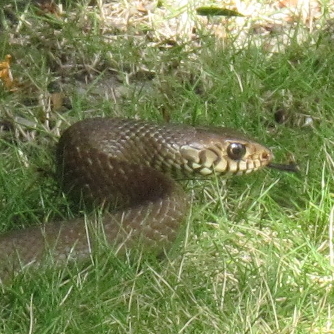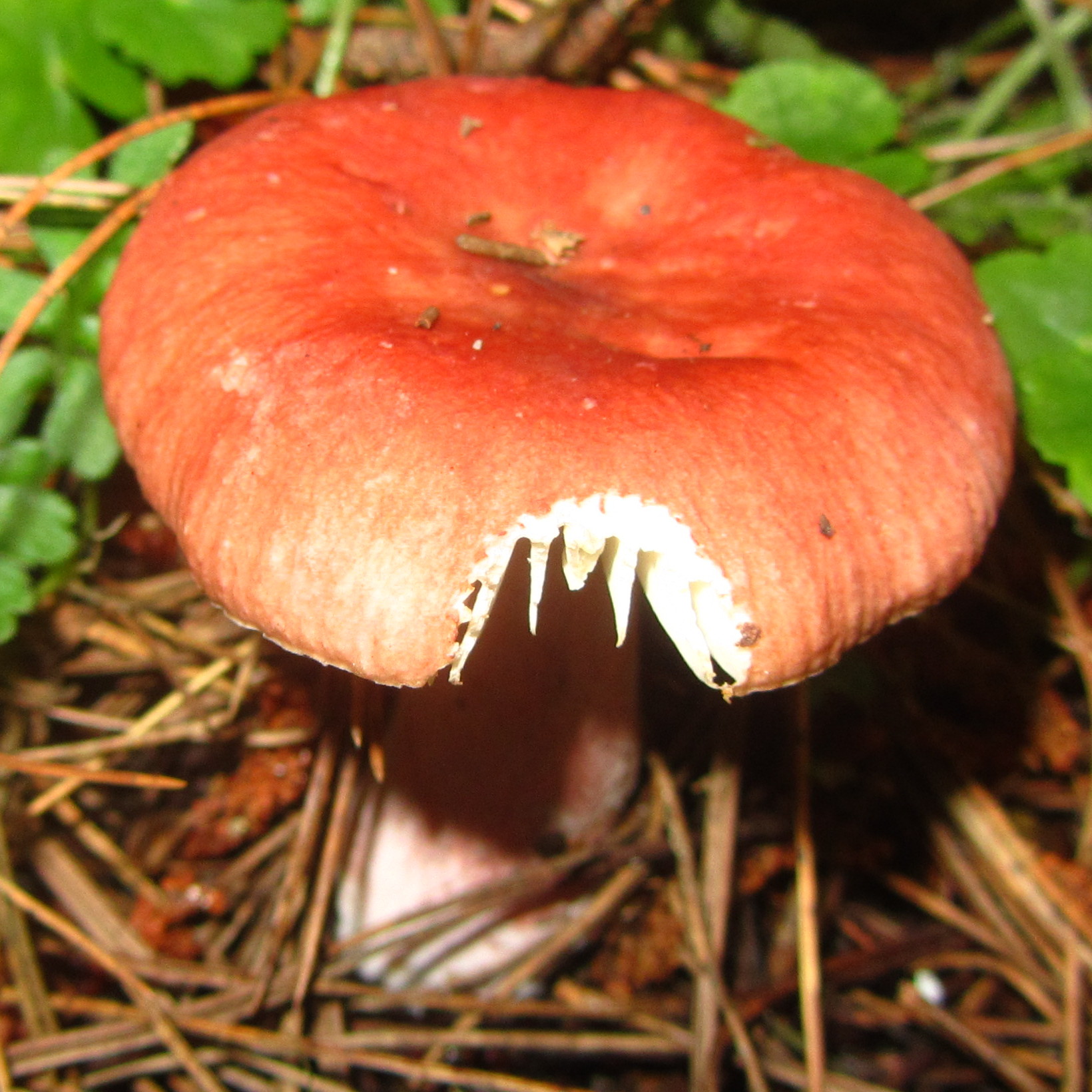It’s always a pleasure to discover that a new species of bird has moved into one’s garden to start a family. Such was the case earlier this year when a pair of collared finchbills (Spizixos semitorques) established their residence in one of the trees near my house, thus becoming regular sight throughout the day. These are very pretty birds, medium sized (around 20 centimetres from head to tail) with green bodies, black heads and white “collars” which give them their name. They are skilled fliers, quite noisy at times and, like their bulbul cousins, are not particularly scared of people. They would often perch on low branches, barely a few metres from me, giving me many great opportunities to admire their sleek bodies and lovely colours.
Their continuous presence that lasted many weeks had made me wander about their true intentions – until I discovered the couple’s nesting place. Well hidden among the thick leaves of a nearby tree, the surprisingly large nest was already quite noisy when I located it, with the two busy parents routinely bringing pieces of food to their hungry offsprings. Although mostly fruit eaters, they also feed on grains and insects, all of which are readily available in the area. It was always great to hear the noisy cacophony of the young chicks whenever one of their parents arrived at the nest.
Like bulbuls, the finchbills don’t waste time growing up. It probably only took them about two weeks before they were ready to leave the nest and once they did, there was quite a bit of drama which I was lucky enough to witness. In fact, it was the two adult birds that alerted me to the fact that something was happening – their loud clattering noise, together with anxious looks towards the ground made me notice one of the young chicks, sitting on a narrow path between the house and a concrete wall. When I approached it, the little bird did manage to fly away, but not very far and I was eventually able to catch it and put it back onto the tree. That was when I noticed the second chick, hanging perilously on a thin branch of a bush.
This one made no attempt to fly away when I approached it. My first thought was that it was the younger of the two siblings and that it must have fallen out of the nest prematurely, so I took it inside the house. I would try to hand-rear it until the young bird was ready to fly and then let it go. But things turned out quite differently. The bird was, in fact, able to fly, so when I saw the two anxious parents fluttering about nervously outside the house, I decided to return the young chick to them. I threw it high up the tree where it had been nesting to let the nature take its course.
I soon regretted the decision. That night, a massive typhoon arrived, uprooting trees, breaking windows, viciously displacing any poorly secured objects. It was a devastating tropical cyclone that left several people dead and scores injured. There was no doubt in my mind that the little bird, which two weeks previously must have been still inside a tiny egg, would not survive such a precarious calamity. But nature has its funny way of surprising people and what a joy it was when, after the typhoon passed and I went outside to assess the damage, I heard the baby finchbill’s cries from a bush! Hungry, disoriented and completely drenched, the young chick somehow managed to survive the foul weather and was loudly trying to let its parents know that it needed food!
As it was still raining, I took it inside the house, dried it with a hairdryer, fed it a mixture of baby bird powder diluted in warm water and let it rest. It soon recovered and flew to the window, once again chirping loudly to attract its parents. They too survived the typhoon and were soon back – they found their young and desperately tried to feed it through the window. I kept the finchbill chick in the house until it stopped raining and then I took it outside, back to the nervous, but relieved parents. These must have been the most devoted birds I’ve ever seen, continuously trying their best to assure the youngster’s survival – against the odds and even against the (sometimes very) cruel nature.
Seeing the three of them sitting on a (now almost completely) leafless and fruitless fig tree was a truly wonderful sight. Even though the damage caused by the typhoon was considerable, all of us were alive. The fig tree will recover, the baby bird will grow up and life will go on…
(This page has been viewed 166 times.)

